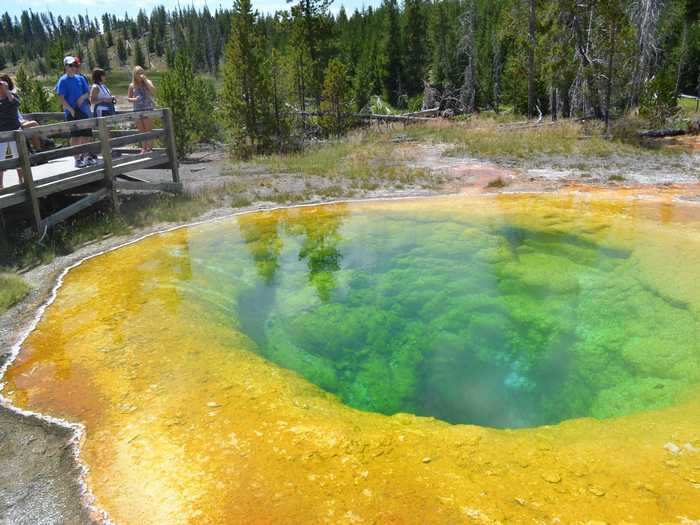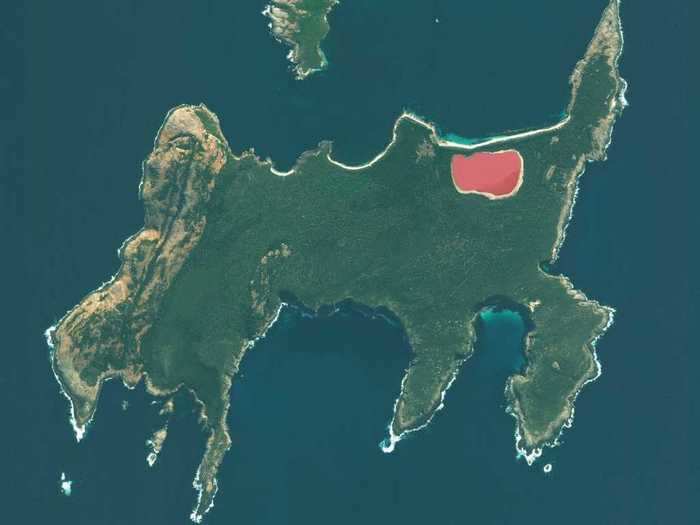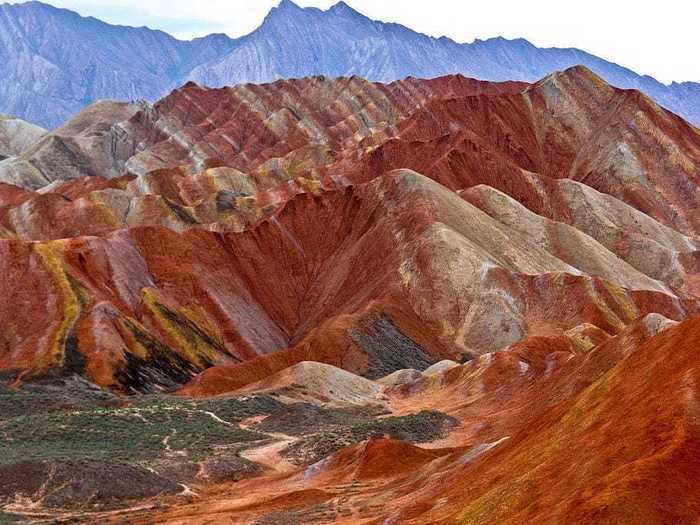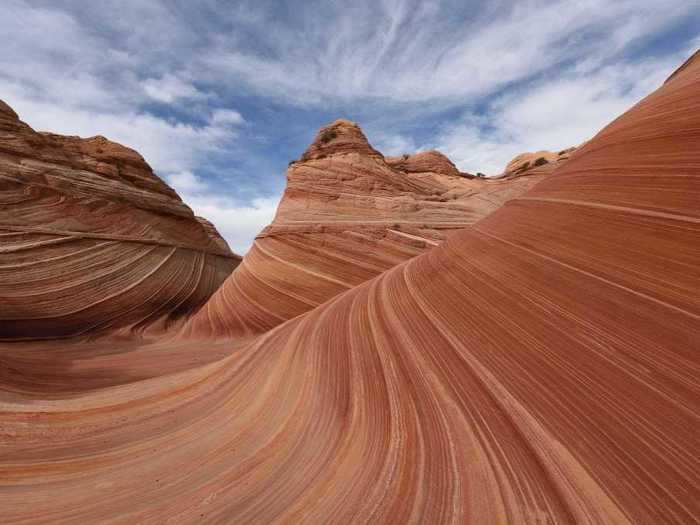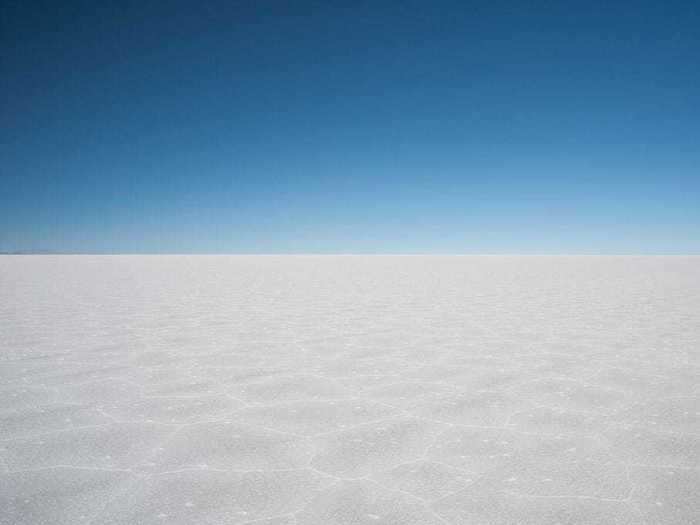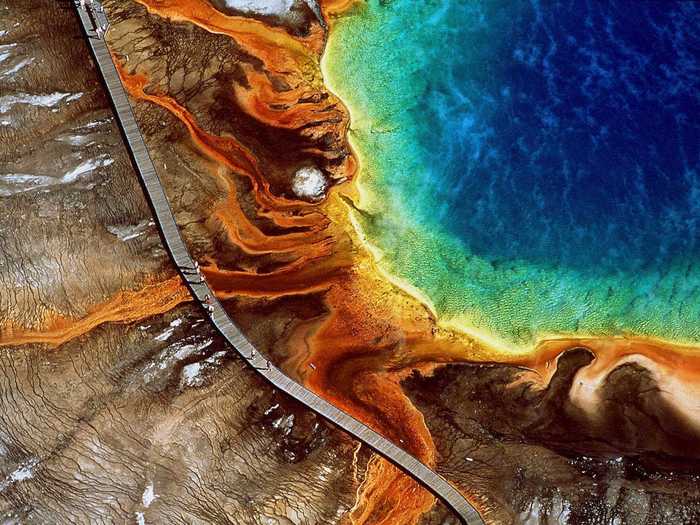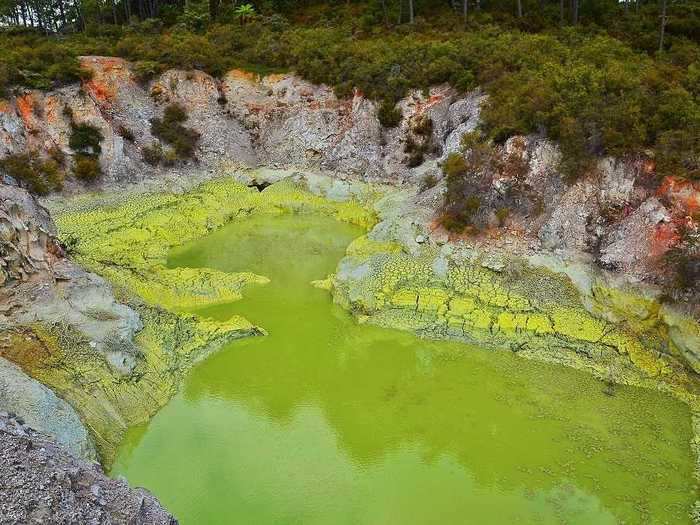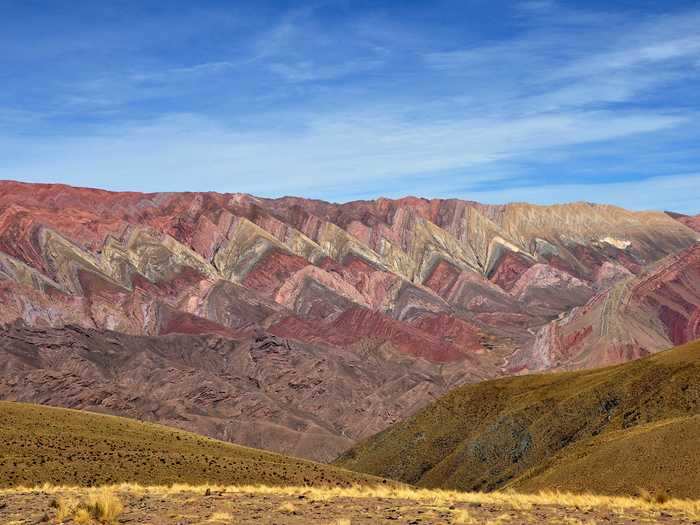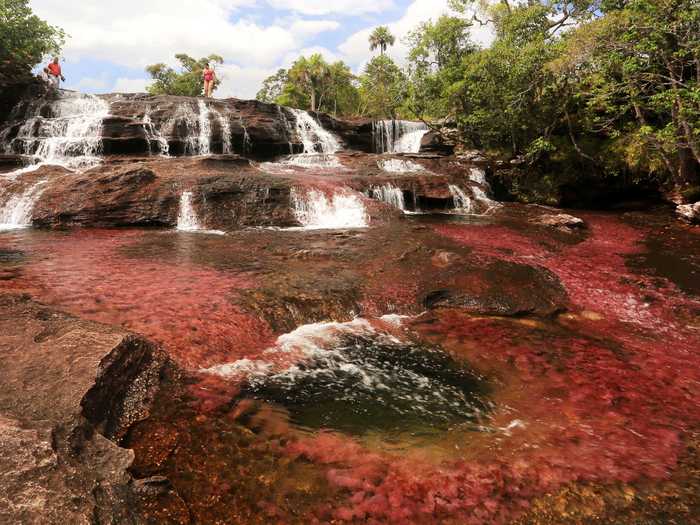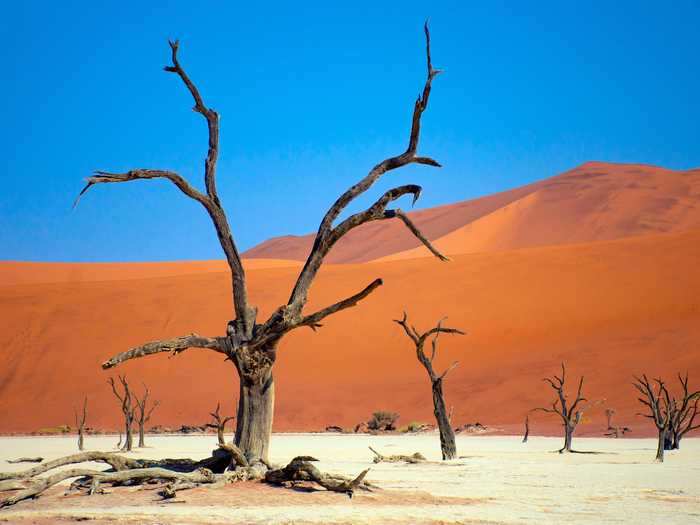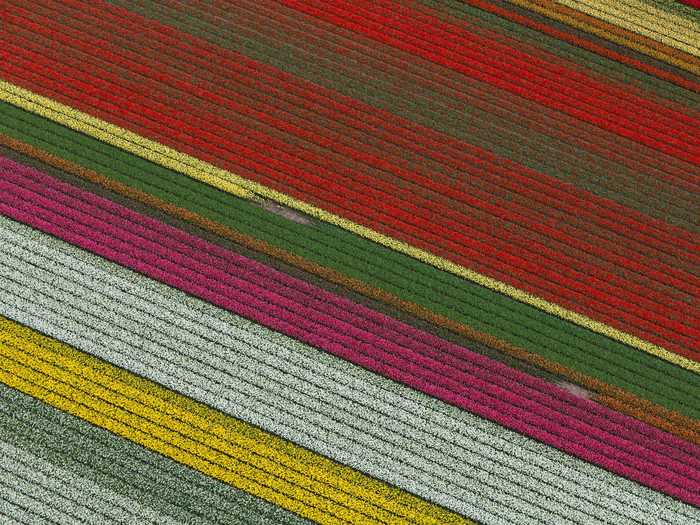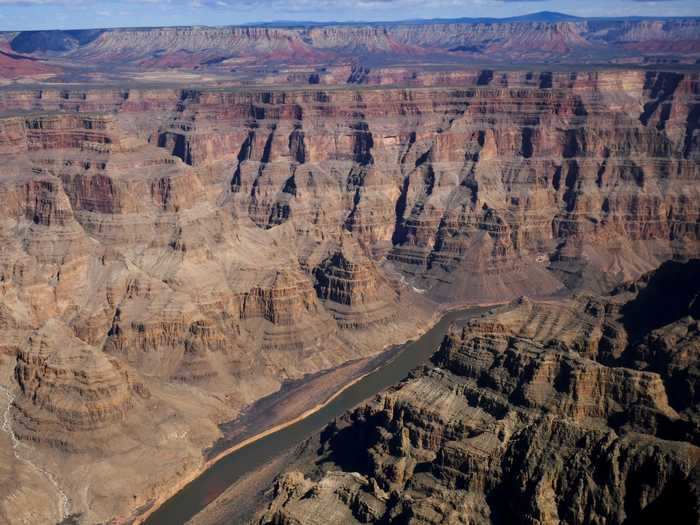The colors in Yellowstone's Grand Prismatic Spring occur naturally.Yann Arthus-Bertrand/AP
- Some natural wonders around the world are so distinctive that photos of them look like they've been edited in Photoshop.
- These landscapes haven't been manipulated with photo-editing software — they occur naturally.
- Featured places include Yellowstone's Grand Prismatic Spring, the Serrania de Hornocal mountain range in Argentina, and Australia's pink Lake Hillier.
Some natural wonders seem too extraordinary or outlandish to be real, but their colors and shapes occur naturally — no photo-editing software necessary.
They may look like they've been Photoshopped, but their features are actually the products of microorganisms, erosion, and geothermal activity.
Here are 14 places that look Photoshopped but are just Mother Nature at work.
Morning Glory Pool in Yellowstone National Park glows in vibrant yellow, blue, and green.
Morning Glory Pool.
Stephen Ehlers/Contributor/Getty Images
The hot spring was originally just a deep blue, but tourists throwing coins and rocks into the pool caused it to cool down, sprout new microorganisms, and change colors.
That's not a highlighted section of Australia's Middle Island — it's the actual color of Lake Hillier.
Lake Hillier.
DigitalGlobe via Getty Images via Getty Images
At Zhangye Danxia Landform Geological Park in Zhangye, China, precipitated groundwater leaves colorful mineral deposits in the mountains.
Zhangye Danxia Landform Geological Park.
Xinhua/Wang Jiang via Getty Images
The Northern Lights require no filter.
The Northern Lights.
Alexander Kuznetsov/Reuters
Also known as aurora borealis, the Northern Lights can be seen near the Arctic Circle in Alaska, Canada, Iceland, Greenland, Norway, Sweden, and Finland.
The Wave in Coyote Buttes North, Arizona, was formed by water drainage and wind erosion in the sandstone.
The Wave.
MARK RALSTON/AFP via Getty Images
Nothing has been Photoshopped out of this image — Uyuni Salt Flat in Bolivia really is that empty.
Salar De Uyuni.
Marka/Universal Images Group via Getty Images
Yellowstone's Grand Prismatic Spring is the largest hot spring in the US.
Grand Prismatic Spring.
Yann Arthus-Bertrand/AP
Devil's Bath in New Zealand really glows bright green.
Devil's Bath.
Ihlow/ullstein bild via Getty Images
The Serrania de Hornocal mountain range in Argentina's Quebrada de Humahuaca valley boasts colorful layers of limestone.
The Serrania de Hornocal mountain range.
Hermes Images/AGF/Universal Images Group via Getty Images
The Cano Cristales river in Colombia is sometimes referred to as the "Liquid Rainbow" and "River of Five Colors."
The Cano Cristales river.
Jose Miguel Gomez/Reuters
The river's red color comes from a plant called Macarenia clavigera that blooms from September through November. Yellow and green sands also give the Cano Cristales its rainbow color scheme.
Deadvlei in Namibia looks like a painting, but is an actual barren landscape inside Namib-Naukluft National Park.
Deadvlei.
Andre Seale/VW PICS/Universal Images Group via Getty Images
Deadvlei is a white clay pan in Namibia. When the sun hits sand dunes, the dried remains of camel thorn trees look like they're up against a painted backdrop.
Rainbow Mountain, also known as Vinicunca or Montaña de Siete Colores (Mountain of Seven Colors), is covered in naturally occurring colorful stripes.
Rainbow Mountain.
Prisma by Dukas/Universal Images Group via Getty Images
Keukenhof's flower fields are human-made, but the lines of colorful blooms don't require any editing software to stand out.
Keukenhof.
Peter Dejong/AP
The Grand Canyon is almost too gorgeous to be real.
The Grand Canyon.
Darrin Zammit Lupi/Reuters
The canyon, one of the Seven Wonders of the World, dates back 70 million years and stretches for 277 miles.

